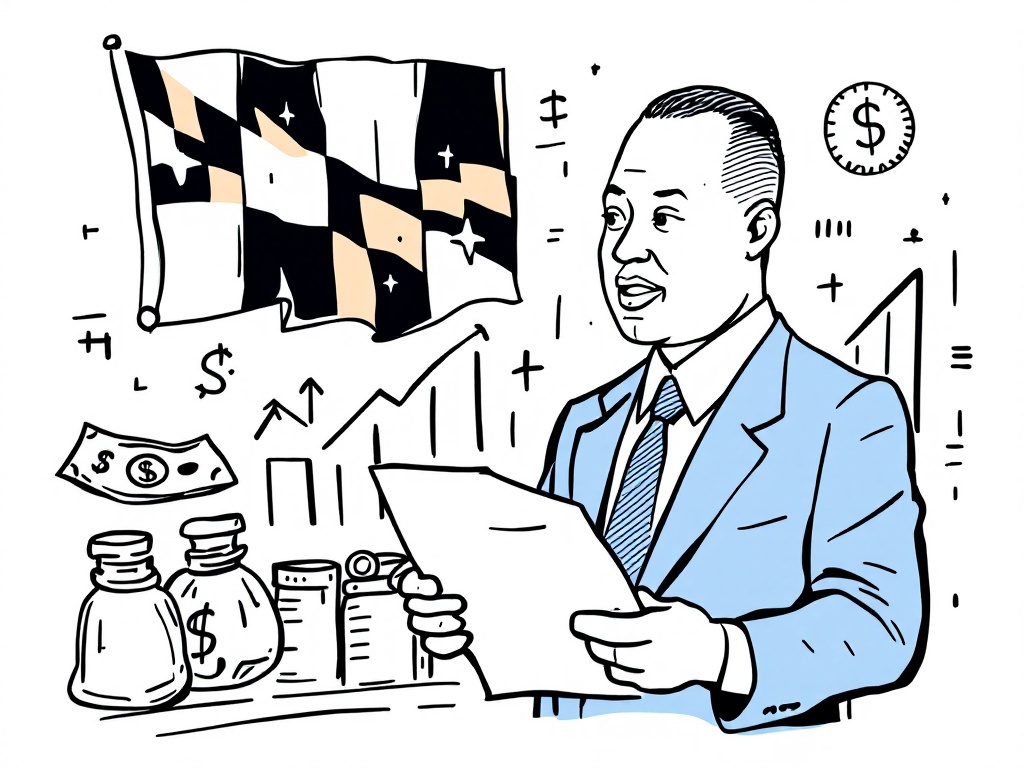Maryland Governor Proposes $67.3 Billion Budget Focusing on Growth

Annapolis, Thursday, 16 January 2025.
Governor Wes Moore’s budget includes tax cuts for most residents, new revenue from higher-income earners, and spending cuts to convert a $3 billion deficit into a surplus.
Comprehensive Budget Reform
Democratic Governor Wes Moore unveiled his ambitious $67.3 billion operating budget for fiscal year 2026 on January 15, 2025, representing a 1% increase from the current year [1][3]. The plan aims to address Maryland’s most severe fiscal crisis in two decades, featuring a $2.95 billion budget shortfall [3]. Moore’s strategy includes $2 billion in spending cuts while maintaining essential services [1]. The proposal would benefit approximately 82% of Maryland taxpayers through tax cuts or neutral impact, while increasing taxes on the state’s highest earners [1][2].
Strategic Economic Investments
The budget allocates significant funding to key sectors, with major distributions including $22.2 million for health, $12.1 million for education, and $9.4 million for higher education [3]. A cornerstone of Moore’s economic growth strategy is the ‘Capital of Quantum’ initiative, which includes a $27.5 million investment expected to catalyze $1 billion in quantum technology development over five years [5][6]. The plan maintains fiscal responsibility by preserving $2.05 billion in the Rainy Day Fund, representing 8% of general fund revenues [3].
Revenue Generation and Tax Reform
The budget introduces several revenue-generating measures, including a 1% surcharge on capital gains for households earning over $350,000 annually, set to sunset after four years [1]. Additional revenue will come from a 75-cent fee on retail deliveries for companies earning $500,000 or more, and an increase in the sports wagering tax from 15% to 30% [3]. The plan also proposes reducing the corporate tax rate from 8.25% to 7.99% beginning in fiscal year 2028 [1].
Legislative Path Forward
The budget proposal faces scrutiny from both parties in the General Assembly, with the House Freedom Caucus criticizing it as a ‘deceptive scheme’ [1]. Senate Budget and Taxation Committee Chair Guy Guzzone emphasized the need for careful revenue management [2]. The legislature must finalize a balanced budget by April 30, 2025, the last day of the legislative session [3][4]. Budget Secretary Helene Grady projects these measures will convert the current $3 billion shortfall into a $106 million surplus by the end of fiscal 2026 [1].
Sources
- marylandmatters.org
- marylandmatters.org
- www.wbaltv.com
- www.cbsnews.com
- umdrightnow.umd.edu
- today.umd.edu